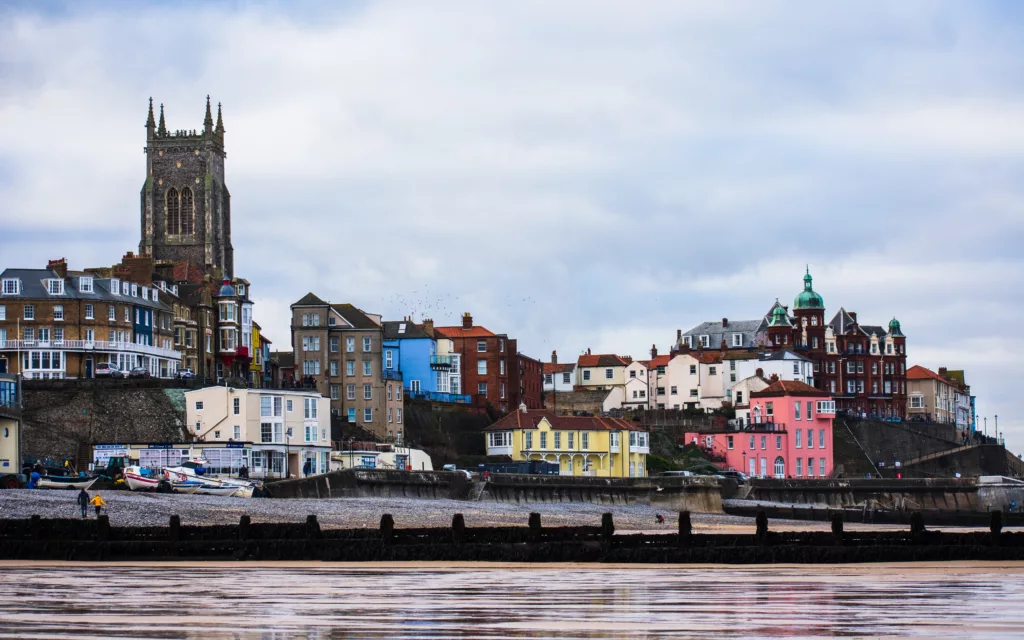
Fishermen and Kings: Olive Edis
Like an old photograph, the name Olive Edis had faded from memory. Yet photographers such as Rankin consider her a trailblazer in a field dominated by men and one of the 20th century’s most important photographers. Cromer Museum holds the world’s largest collection of her work and the ‘Fishermen and Kings’ Gallery is dedicated to the life and work of this pioneering woman.
Her sensitive use of natural light and shadow created strikingly contemporary portraits, revealing glimpses of the sitter’s inner essence. A female business founder, her innovative technical skills were entirely self-taught and included introducing colour autochrome portraits viewed through a diascope made to her own patented design.
Beginning in 1903, her work captured people from many walks of life, from Norfolk fishermen to kings, authors, poets, soldiers and politicians. Famous sitters included George Bernard Shaw, Thomas Hardy, David Lloyd George and Emmeline Pankhurst. She was also the first British woman appointed as an official war photographer, documenting the ravaged landscapes of the Western Front and women’s war work from nursing on hospital ships to manual labour in engine repair shops. Often working in difficult conditions, her journal, on display in Cromer, notes “One soon forgets the tiredness and the discomfort but not the wonderful things one has seen.”
And there’s plenty more to explore at this award-wining museum. From a Victorian fisherman’s cottage right back to fossils like the astonishing West Runton mammoth, varied galleries tell the story of Norfolk’s ever-changing coastal history.
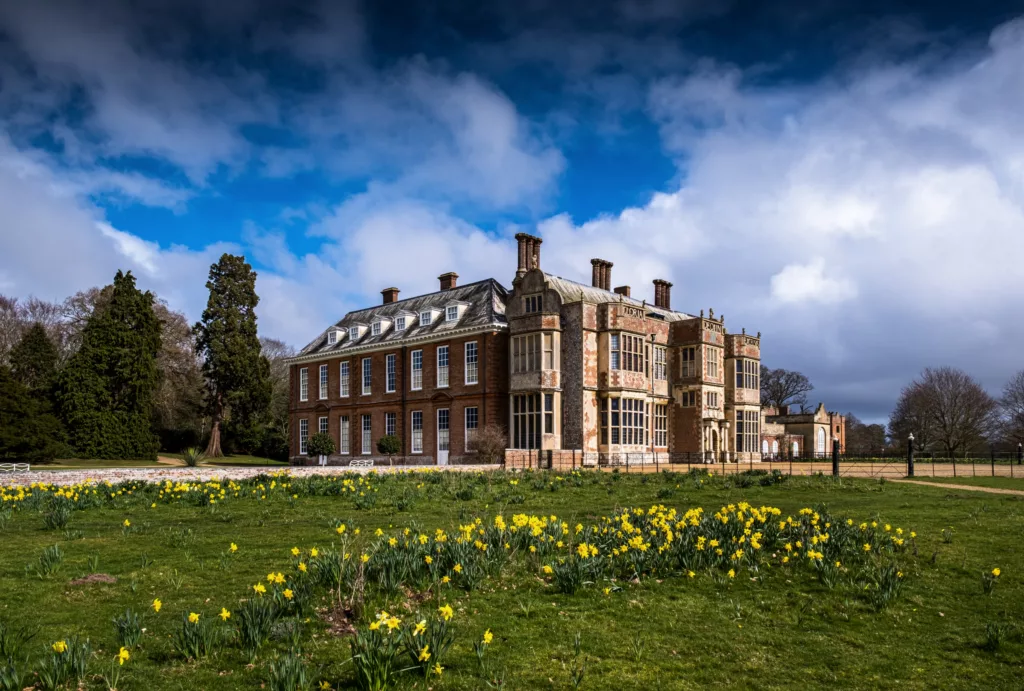
The Ghostly Bookworm of Felbrigg Hall
Felbrigg Hall is one of East Anglia’s most delightful 17th century country houses, an elegant blend of opulence and comfort, with rooms full of pleasure and surprise. Accessible walks are wonderful in all seasons, with 380 acres of parkland, woods and a beautiful Walled Garden. After a stroll, wander over to The Squire’s Pantry tea room for a hot lunch, afternoon tea or ice cream in the pretty courtyard.
There’s also a well-stocked second-hand bookshop, which would delight at least one of Felbrigg’s historic owners…
William Windham III, a Whig politician, inherited the hall in 1749. Fanny Burney wrote he was ‘one of the most agreeable, spirited, well-bred and brilliant conversers I have ever spoken with’, no doubt due to his voracious reading. He was a total book fanatic. But he paid for it with his life.
One summer night in 1809 he saw a house fire in Conduit St, London, a few doors away from the property of a friend with a valuable library. Although nicknamed ‘Weathercock Windham’ for his notorious political indecision, this time he didn’t hesitate and rushed to rescue the books before they were caught in the flames. Running with heavy volumes, he fell and damaged his hip which developed a tumour needing surgery the following year. He never recovered and died in June 1810.
But there’s one more chapter. With all eternity to catch up on his reading, Felbrigg staff sometimes see Windham’s ghost sitting in the library, peacefully enjoying his books.
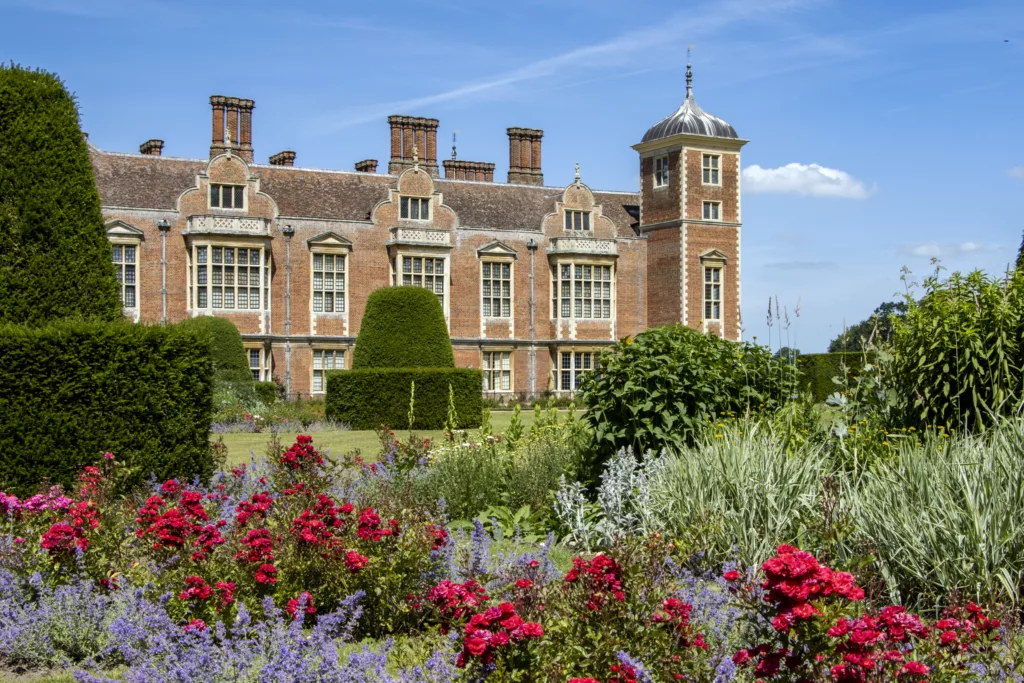
Over a Hot Stove – Flo Wadlow’s Life Below-Stairs
Historical documents rarely reflect servants’ voices. Get the below-stairs low down from Florence Wadlow, a kitchen maid who worked at Blicking Hall in the 1930s.
Her charming memoir ‘Over a Hot Stove: A Kitchen Maid’s Story’ is a must-read for fans of Downton Abbey and Upstairs, Downstairs, although such programmes didn’t impress Flo. When she died in 2013, The Daily Telegraph quoted her as saying: ‘They have got it wrong. They should have talked to people like me.’
Flo was born in 1912 in West Ham, London. Her life in domestic service began aged 16 as a kitchen maid in South Kensington. Rising quickly through the ranks, by 23 she was taken on as a cook for Lord Lothian, Blicking Hall’s last private owner, cooking for the Astors, Queen Mary and Prime Minister Stanley Baldwin, who stayed at Blickling during the 1936 abdication crisis. Flo recalled his wife, Lucy Baldwin, tipping her a pound, nearly whole week’s pay in those days! When Lord Lothian was appointed Ambassador to Washington, Flo moved to cook for the Bulwer-Long family at Heydon, where she met her husband Robert Wadlow.
Blickling Hall is now a National Trust property and Flo’s fourth floor bedroom is recreated just as she’d have known it. Heydon Hall is a private home, but you can explore the immensely pretty village where Flo once walked with her beau. Stop for a pint at The Earle Arms or book a luxurious cream tea at the delightful award-winning Heydon Village Tea Shop.
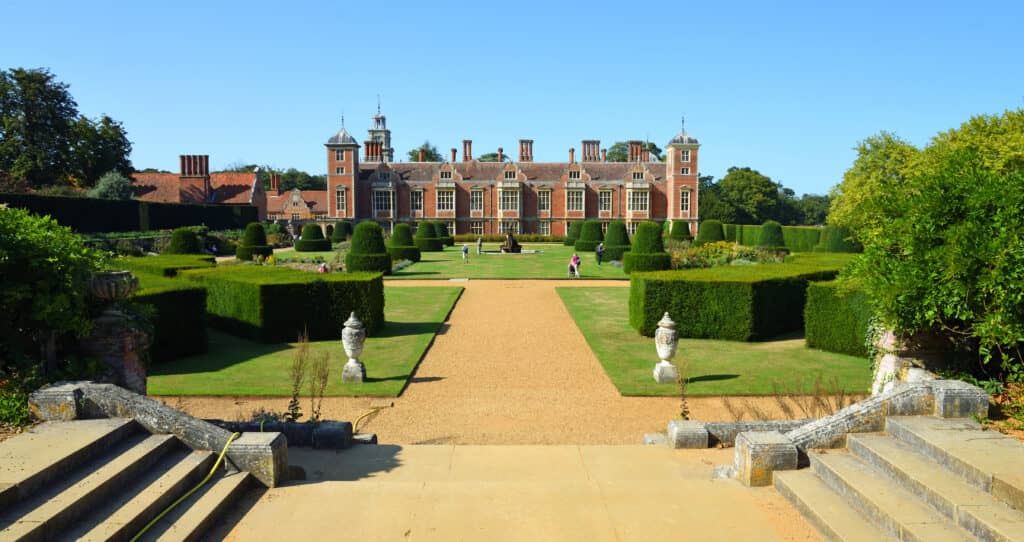
The Headless Queen
Love the hit musical Six? Head to Blicking Hall! The stunning Jacobean mansion in sweeping parkland teems with ghosts. Take Anne Boleyn, Henry VIII’s squeeze when he went off Katherine of Aragon. Anne had a daughter but it was unthinkable a mere girl might be turn out to be one of England’s greatest monarchs, so Henry accused Anne of adultery, treason, witchcraft and sexual deviation. With her own brother – to show he was really serious. Anne was beheaded in 1536. On 19th May, the anniversary, you might see her carriage storming up the drive, with headless horses whipped on by a headless coachman. The only head around is Anne’s, though she’s holding it in her lap. Scary! The coach skids to a halt and Anne rushes into the Hall, crying through the rooms, vanishing at first light.
Lord Rochford, Anne’s brother, was also executed. His headless ghost is seen being dragged across country by more headless horses. And then there’s headless Sir Thomas Boleyn, their father, cursed for failing to protect his children. Doomed for all eternity to attempt crossing 12 bridges before cockcrow, destined never to complete his frantic task.
Prefer ghosts with heads? Sir Henry Hobart built Blickling in the 17th century on the site of Sir Thomas Boleyn’s house. Fatally injured in a duel, his dying groans still echo through the corridors. A merrier ghost is Sir John Falstofe, alleged inspiration for Shakespeare’s Falstaff. Bet he’s the death and soul of the party.
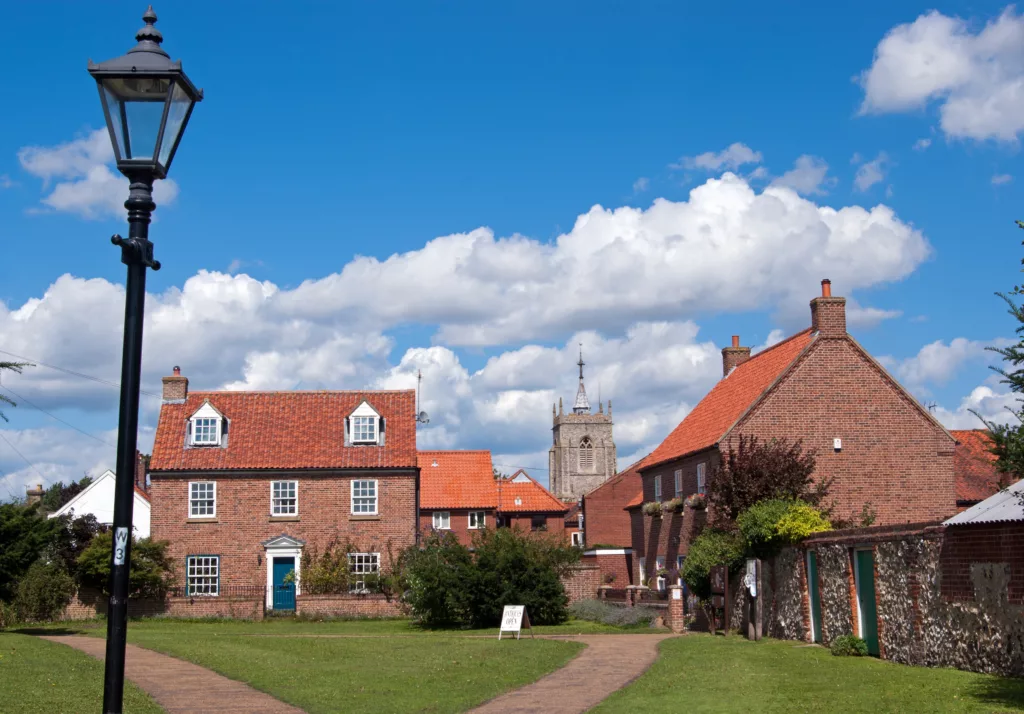
Starling to Soprano – Norfolk’s Singing Sensation
Kathleen Starling was well named, for those familiar birds have an extraordinary song, with smooth liquid sounds swooping through warbles and whistles. Still, when Kathleen took to the stage she felt the French version of Starling was more theatrical and so an ironmonger’s daughter from Aylsham became Kathleen Destournel, songbird of international acclaim.
Youngest of four girls, Kathleen was born on 30th July 1890. She had singing lessons locally and in France, appearing in several productions at the Royal Opera House in Covent Garden including ‘La Boheme’ in 1919 where she sang with Australian opera sensation Dame Nellie Melba in front of the King and Queen. She so impressed Melba, she took her to Melbourne where Kathleen performed at at Her Majesty’s Theatre. Kathleen was famed for supporting the troops, giving a rousing performance at a benefit in a barn at a farm in Horning during World War One. In 1942 she led a concert party, departing London on the ‘Monarch of Bermuda’ during an air raid. She travelled to Cape Town, Cairo and Alexandria and throughout North Africa, facing bombings, blackouts and buses riddled with bullets.
She settled in Tuscon Arizona with her husband Bob, until his death when she flew back to the family nest in Aylsham. Kathleen’s father, William Fred Starling, was an ironmonger on Red Lion Street. Get a flavour of the town’s fascinating heritage by staying at The Ironmonger’s gorgeous boutique accommodation, set amid fabulous independent shops right on the market square.
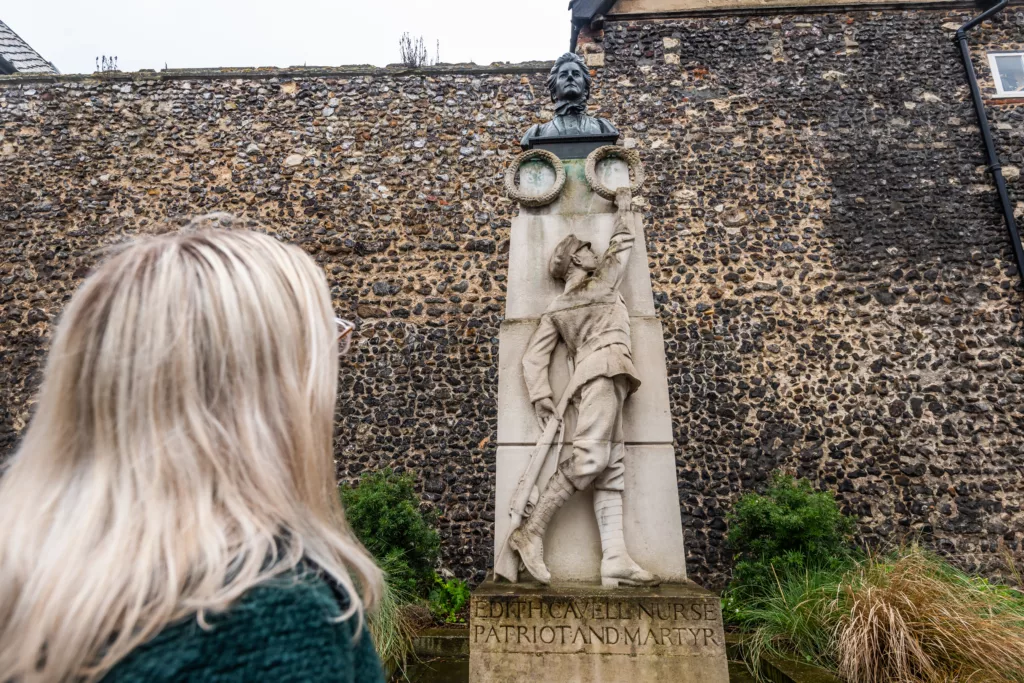
Edith Cavell, a Norwich Heroine
Outside Norwich Cathedral’s arched entrance is a memorial to one of Britain’s bravest women. The likeness of Edith Cavell, in her nursing uniform, gazes over Tombland while a soldier, carved in relief, reaches up to hang a laurel garland honouring her extraordinary courage.
Born in 1865 and raised in the Norfolk village of Swardeston, Edith registered at The London Hospital School of Nursing in 1896. After qualifying she worked at various infirmaries, before starting the first professional school of nursing in Brussels in 1907. When the First World War broke out in 1914, Edith nursed soldiers from both sides of the conflict. Meanwhile, she joined the Belgian Resistance, sheltering well over 200 Allied soldiers, helping them escape into neutral Holland. But Edith was betrayed. She was arrested on 5th August 1915, court-martialled and sentenced to death by firing squad. Ignoring the international outcry, Edith Cavell was shot at dawn on the 12th of October 2015. Her last words were: ‘Standing as I do in view of God and eternity, I realise that patriotism is not enough. I must have no hatred or bitterness for anyone.’
After the war her body was brought home to be given state funeral at Westminster Abbey, followed by a burial at Norwich Cathedral. In the east side of the grounds, a graveside service is held in her memory every 12th October. If you go, afterwards raise a glass to this remarkable daughter of Norfolk in the Tombland pub that bears her name.
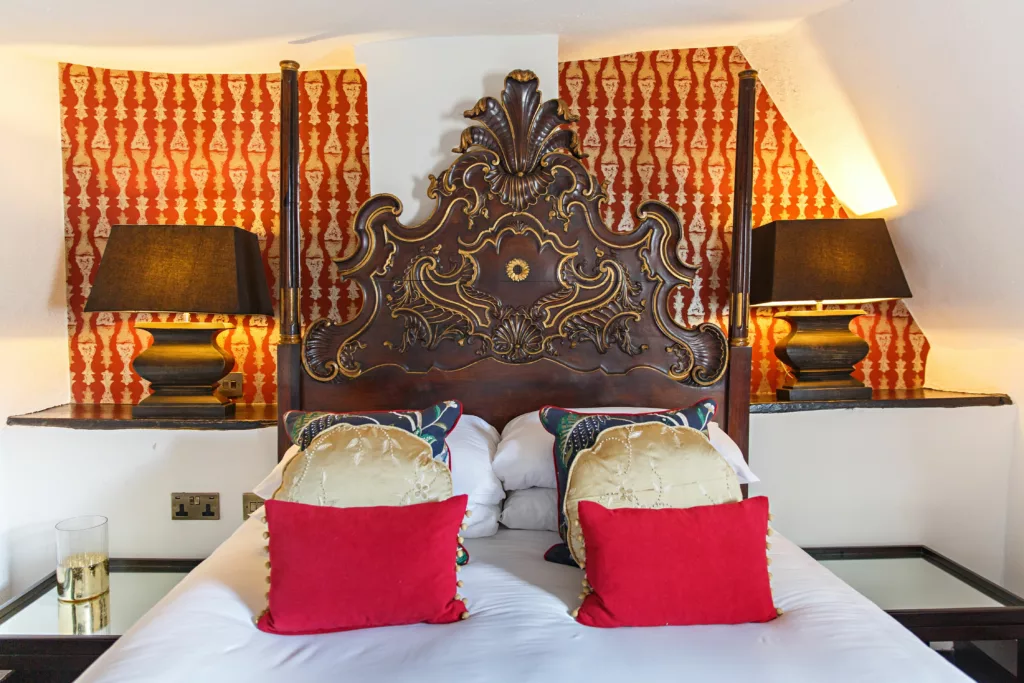
Maids Head Hotel: The Oldest in the Country
Maids Head Hotel in Norwich’s historic Tombland recently had a multi-million pound make-over with guests at the heart of every decision. A site of hospitality for over 800 years, it has a good claim for being the UK’s oldest hotel.
From a Bishop’s grand Norman palace to a notorious 13th century tavern, these walls echo with amazing stories. Edward the Black Prince feasted here after a jousting contest and years later, Catherine of Aragon, Henry VIII’s first wife came to party, perhaps in the 16th century ‘snug’. Renowned as a clean lodgings the Maids Head was noted as a safe place to stay during 17th century plague outbreaks. By the 18th century it was a bustling coaching inn where local radicals cheered seismic uprisings, in 1789 drinking the health of rebellious Thomas Paine and revolutions in France and America. Americans with more frivolous activities in mind met sweethearts here in WW2, before heading over the road to the Samson and Hercules dance hall. Never a dull moment!
Now an elegant city hotel, Maids Head blends modern comfort with magnificent heritage. The Wine Press Restaurant was once the 15th century inn courtyard and, believed to be of the same era, the fabulous wood-panelled Oak Room is delightful for afternoon tea.
Want more? How about a spin round the Fine City in a vintage Bentley or booking a Bobbin Bike to explore on two wheels before a night of fine dining? Just ask and the Maids Head will make it happen!
Build your own itinerary
If you fancy creating your own itinerary for a day trip to Norfolk or a longer visit, it couldn’t be simpler. Just go to Search Activities and select from our wide range of free and paid-for experiences, saving any that capture your imagination with the click of a button.
Once you’ve finished, you’ll find all the information stored in My Favourite, where you can drag and drop activities to create your own day-by-day itinerary! You can download this to a calendar and even share it with friends.
